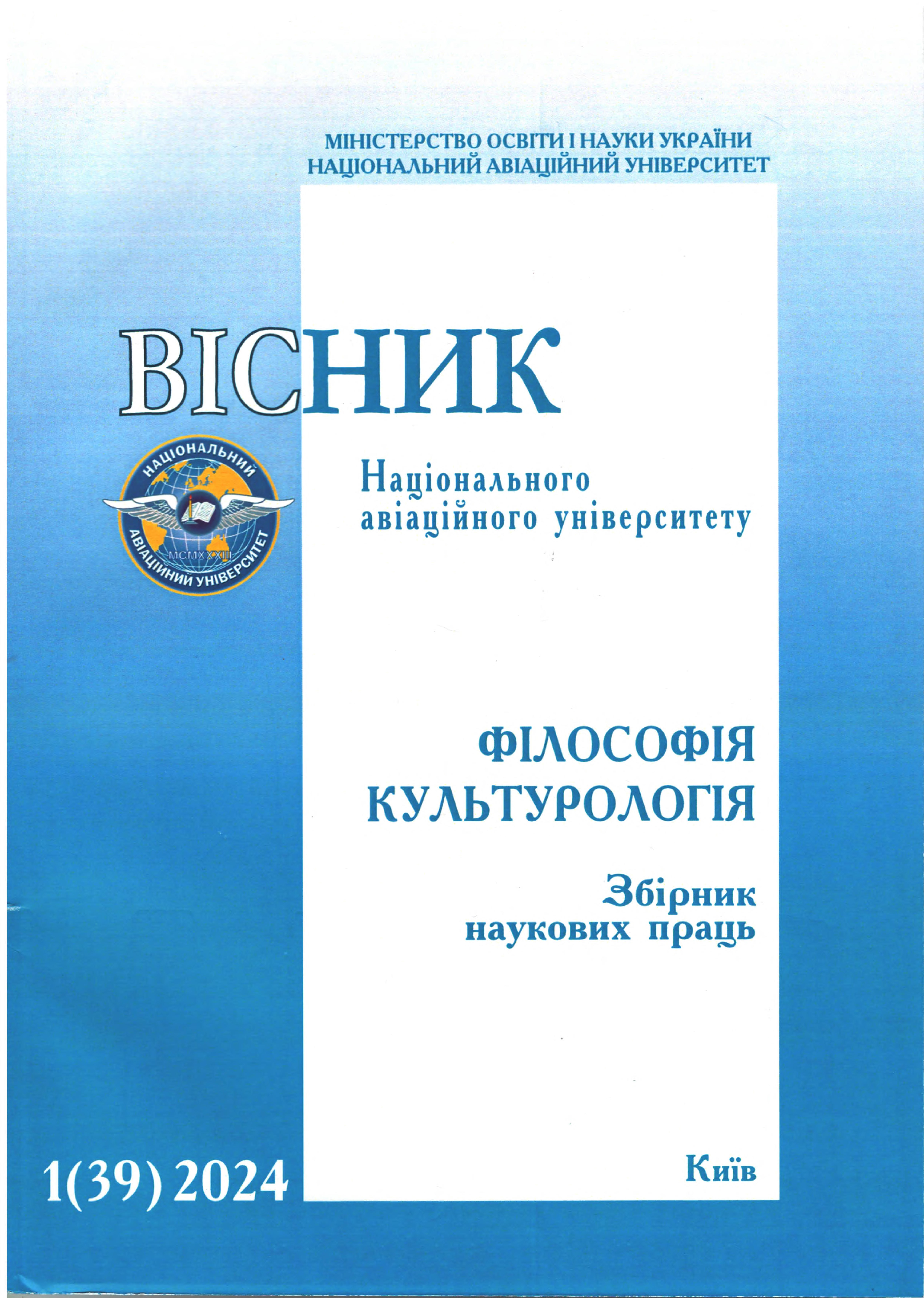THE CULTURE OF THINKING AS A MODERN TREND: THEORETICAL AND APPLIED ASPECTS
DOI:
https://doi.org/10.18372/2412-2157.39.18450Keywords:
axiology, ethics, critique, culture, thinking, logic, practice, polylogue, trendAbstract
The introduction examines the need to actualize the concept of "the culture of thinking" in the modern networked world of post-truth, echo chambers and ideological narratives. The aim of the article is to study the genesis and practical development of the modern trend towards "the culture of thinking" from the perspective of critical, logical, ethical and axiological backgrounds. Research methods. In order to properly reveal its purpose, the publication uses an interdisciplinary methodological base, in particular, structuralist-phenomenological, logical-analytical, ethical-axiological, cultural-philosophical, hermeneutic-ontological, prognostic and comparative methods. Other methodological strategies such as "conceptual history", "pre-understanding", explication, commentary and interpretation are also actively involved. Research results highlight the actual vectors of the development and transformation of the "culture of thinking" as a concept (from ancient ratio to postmodern irrationalism and metamodern irony). The study recontextualizes the classical concepts-markers hypostatizing the culture of thinking through the humanistic tradition: education (in the sense of self-education), tact, common sense, faculty of judgement. The authors analyze practical criteria for the development of the culture of thinking in modern youth (using as an example the experience of teaching elective courses "Logic and critical thinking in the professional culture of a philologist and translator" and "Ethical aspects of intercultural communication" in higher education during the current 2023-2024 academic year). The discussion outlines modern polylogues and deliberations regarding "the culture of thinking" as a concept and its effectiveness between popularization (as a creative skill) and academic dimensions of development (using the example of modern scientific debates and publications). The attention of the study is focused on the possibilities of developing the European culture of thinking as a modern trend, on the one hand, and a kind of metamodern grand narrative, on the other. The authors draw the following idea in the conclusions: modern dimensions of both theoretical and applied horizons of the culture of thinking can be determined through a kind of "cultivation of thought" in the sense of a permanent appeal to common sense, tact, (self) education, and critical ability to make adequate and unbiased judgments. At the same time, the outlined approach does not fully exhaust the foundations and attributes of the culture of thinking, but, on the contrary, broadens the scope for further research, in particular, of an interesting yet ambiguous concept of creativity as one of the "soft skills" currently in demand.
References
Dobson A. An Introduction to the Politics and Philosophy of José Ortega y Gasset. Cambridge: Cambridge University Press, 2008. 147 p.
Lyotard J.-F. La Condition Postmoderne: Rapport Sur Le Savoir. Paris: Editions de Minuit, ([1979] 2009). 128 р.
Lipovetsky G. Les temps hypermodernes. Nouveau Collège de Philosophie. Paris: Grasset, 2004. 196 р.
Комісар Л. Нова українська автентичність у дзеркалі ребрендингу універсалістської макроетики. «Ad orbem per linguas. До світу через мови». Матеріали Міжнародної науково-практичної відеоконференції «Наративи сучасної України у світовій геополітиці», 18–19 травня 2023 року. Київ: Видавничий центр КНЛУ. 2023. С. 158-160.
Левітін Д. Структуроване мислення. Ясний розум в інформаційному хаосі; пер. з анг. Романа Шияна. Київ: Наш формат. 2020. 456 с.
Ніцше Ф. Народження трагедії. Невчасні міркування I-IV; пер. з нім. Катерини Котюк і Олега Фешовця. Київ: Астролябія. 2020. 624 с.
Ортега-і-Гасет Х. Вибрані твори; пер. з ісп. Київ: Основи. 1994. 420 с.
Рослінг У., Рослінг-Рьонлюнд А, Рослінг Г. Фактологія. 10 хибних уявлень про світ, і чому все набагато краще, ніж ми думаємо; пер. з англ. Ірини Ємельянової. Київ: Наш формат. 2019. 320 с.
Саїд Е. Гуманізм і демократична критика: серія лекцій; пер. з англ. Артема Чапая. Київ: Медуза. 2014. 144 с.
Сібоні О. Досить уже помилок. Як наші упередження впливають на наші рішення; пер. з англ. Марини Марченко. Київ: Лабораторія. 2021. 240 с.
Український воєнний дискурс: від опору до Перемоги. (2023). Програма Міжнародної науково-практичної відеоконференції «Наративи сучасної України у світовій геополітиці». Київ: КНЛУ. С. 8-9.
Цицерон М. Т. Тускуланські бесіди. Про обов’язки; пер. Володимира Литвинова. Київ: Апріорі. 2023. 440 с.

